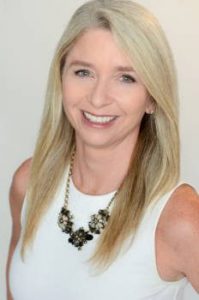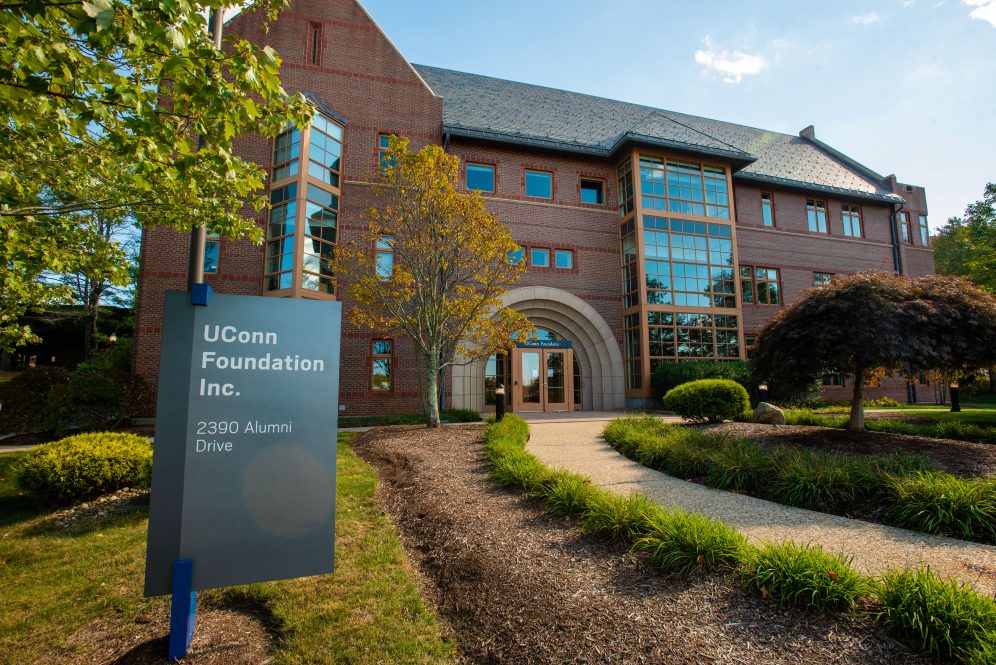Laura Chapman Rubbo ’91 (CLAS) wants you to know that big business offers the opportunity to create positive change, particularly in advancing global human rights, and she has spent her professional life working to effect this change.
Born in Australia to American parents, Rubbo moved to the United States at the age of 2 and grew up in suburban Connecticut. Her parents had worked overseas in Australia, Germany, and Japan, and Rubbo says she was aware of the broader world—and the inequalities that exist worldwide—from a young age.

“I was raised in a household with parents who really valued understanding other cultures and languages and how different political and economic systems work,” she says. “This inspired my interest in history and international relations. I understood that the world is a lot bigger than my little corner of Connecticut.”
Rubbo attended UConn, where she majored in economics and German, and earned a master’s degree in international affairs from George Washington University. She then moved to San Francisco and began her career at the corporate headquarters of Gap, where she worked with the company to address issues of human rights in global supply chains. She then joined Business for Social Responsibility, a nonprofit that advises its member companies on how to be more socially and environmentally responsible.
In 2003, Rubbo was recruited by Disney to lead work in the company’s international labor standards group, where she oversaw conditions in factories that make Disney-branded consumer products. She has spent the last five years in Disney’s global public policy group, where she leads strategy and policy for how Disney demonstrates its respect for human rights globally.
Rubbo has worked with many dedicated business professionals who work day in and day out on advancing respect for human rights. To help widen the field, she established the Laura Chapman Rubbo ’91 Endowed Fund in Human Rights and Business. The fund provides support for undergraduate students majoring or minoring in human rights and graduate students in the human rights program, with preference for those who are also studying business, economics, political science, or engineering.
“UConn’s Human Rights Institute is a really strong human rights program. It’s pretty rare to have this type of cross-functional institute that allows people to major or minor in human rights alongside their other degree and to take advantage of a multi-disciplinary curriculum,” she says. “My goal in endowing the scholarship is to leverage the really strong foundation UConn already has around supporting education in human rights, and to accelerate and deepen the relationship between human rights and business.”
“Laura has been a champion of business in human rights not only within individual companies but also globally through her participation in policymaking at the highest levels,” says Shareen Hertel, professor of political science and human rights. “She has been generously coming back to campus to share her perspective with students in our classes and in small group discussions over many years. This scholarship marks a wonderful way of institutionalizing her legacy as a leader in the field.”
Kathryn Libal, director of the Human Rights Institute, agrees. “Laura’s career trajectory as a leader in advancing human rights through business is an exemplar for students earning their degree in human rights at UConn.”
Rubbo has supported the Human Rights Institute for many years but decided to endow a scholarship to ensure a lasting impact. She hopes that the scholarship will lead to constructive, collaborative ideas to advance human rights work in business.
“I wanted to create something that would exist in perpetuity to support the integration of human rights and business, which is critically important,” Rubbo explains. “I wanted to plant the seed early with students to help them understand that businesses are committed to respecting human rights and to help enable a greater cohort of future business leaders that are committed to that vision.”



